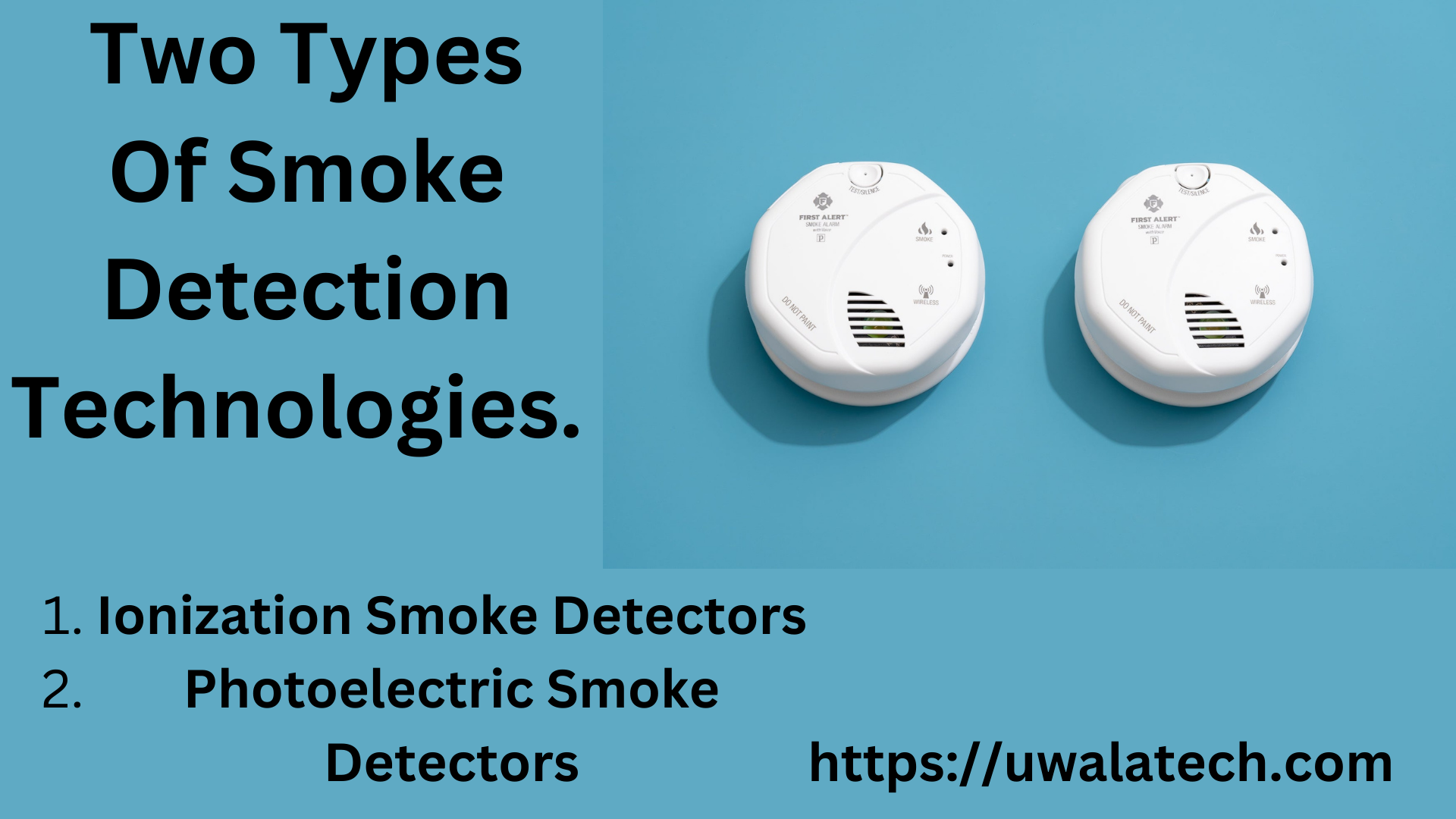Smoke Detection Technology: Understanding the Two Types of Detection Methods
There Are Two Types Of Smoke Detection Technologies Ionization Smoke Detectors & Photoelectric Smoke Detectors
Smoke detectors are essential components of any home or commercial building’s fire safety system. They detect the presence of smoke in the air and alert occupants to potential danger, giving them precious time to evacuate the building. There are two primary types of smoke detection technologies: ionization and photoelectric. In this article, we’ll explore both types in detail to help you understand the differences and choose the right one for your needs.
Ionization Smoke Detectors
Ionization smoke detectors use a small amount of radioactive material to ionize the air within the detector’s sensing chamber. When smoke enters the chamber, it disrupts the electrical balance, triggering the alarm. Ionization detectors are highly effective at detecting fast-burning, flaming fires and are often used in areas where these types of fires are likely to occur, such as kitchens and garages.
Photoelectric Smoke Detectors
Photoelectric smoke detectors use a light source and a sensor to detect the presence of smoke. When smoke enters the chamber, it scatters the light, triggering the alarm. Photoelectric detectors are highly effective at detecting slow-burning, smoldering fires, such as those caused by cigarettes or faulty wiring. They are often used in bedrooms and living areas where these types of fires are more likely to occur.
Which Type of Smoke Detector is Right for You?
Choosing the right smoke detector for your home or building depends on several factors, including the type of fire hazards present, the size of the area to be protected, and your personal preferences. If you’re unsure which type of smoke detector is right for you, consider consulting with a professional fire safety expert.
In conclusion, there are two primary types of smoke detection technologies: ionization and photoelectric. Ionization detectors are highly effective at detecting fast-burning, flaming fires, while photoelectric detectors are highly effective at detecting slow-burning, smoldering fires. Choosing the right type of smoke detector for your needs can help ensure that your home or building is adequately protected against the dangers of fire.
Advantages and disadvantages of ionization and photoelectric smoke detectors:
| Advantages | Disadvantages | |
| Ionization Detectors | – Quick response to fast-burning fires | – Prone to false alarms triggered by cooking smoke or steam<br>- Use of radioactive material poses potential health hazard |
| – Affordable | ||
| Photoelectric | – Effective at detecting slow-burning, smoldering fires | – Slower response to fast-burning fires<br>- More expensive |
| Detectors | – Fewer false alarms compared to ionization detectors |
frequently asked questions (FAQ) about ionization smoke detectors and photoelectric smoke detectors:
Q: What is an ionization smoke detector?
A: An ionization smoke detector is a type of smoke detector that uses a small amount of radioactive material to ionize the air within the detector’s sensing chamber. When smoke enters the chamber, it disrupts the electrical balance, triggering the alarm. Ionization detectors are highly effective at detecting fast-burning, flaming fires.
Q: What is a photoelectric smoke detector?
A: A photoelectric smoke detector is a type of smoke detector that uses a light source and a sensor to detect the presence of smoke. When smoke enters the chamber, it scatters the light, triggering the alarm. Photoelectric detectors are highly effective at detecting slow-burning, smoldering fires.
Q: Which type of smoke detector is better?
A: Both ionization and photoelectric smoke detectors have their own strengths and weaknesses, so the “better” option depends on the specific needs and fire hazards present in your home or business. In general, photoelectric smoke detectors are better at detecting slow-burning, smoldering fires, while ionization smoke detectors are better at detecting fast-burning, flaming fires.
Q: Can I use both types of smoke detectors in my home or business?
A: Yes, it is recommended to have both types of smoke detectors in your home or business for optimal fire safety. This is because each type of smoke detector is more effective at detecting different types of fires, so having both will provide better overall coverage.
Q: How often should I replace my smoke detectors?
A: Smoke detectors should be replaced every 10 years, or according to the manufacturer’s instructions. It is also important to test your smoke detectors regularly to ensure they are functioning properly.
Q: How do I install a smoke detector?
A: Smoke detectors should be installed on every level of your home or business, and in every bedroom and hallway leading to bedrooms. Follow the manufacturer’s instructions carefully for proper installation, and consider hiring a professional electrician if you are unsure.
In conclusion,
understanding the differences between ionization and photoelectric smoke detectors, as well as how to properly install and maintain them, is crucial for optimal fire safety in your home or business. If you have any further questions or concerns, don’t hesitate to consult with a professional fire safety expert.
